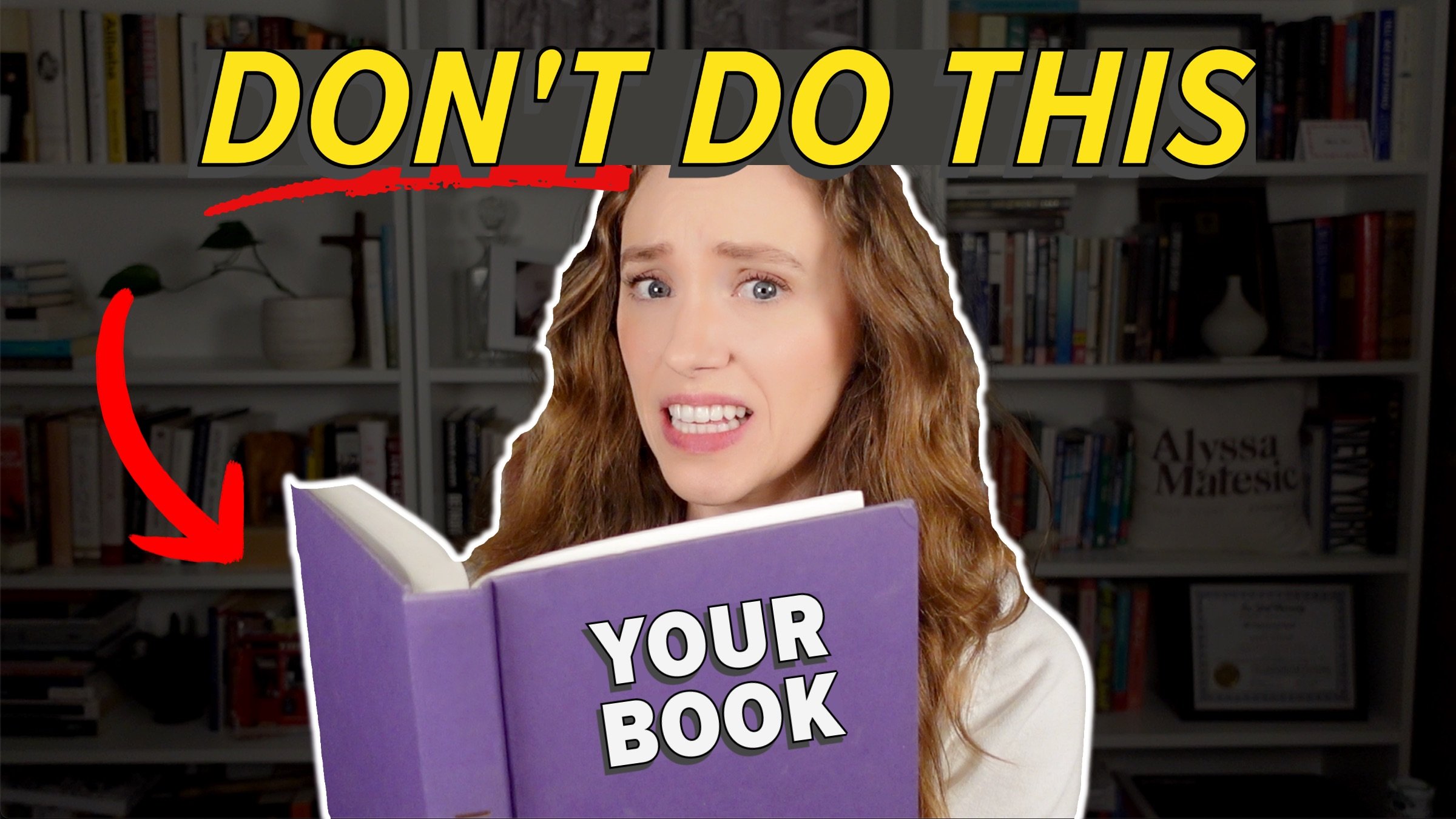What Makes a Best-Selling Novel? Here’s the Secret
HIT PLAY OR READ THE POST BELOW:
As a professional book editor, my job is to help writers strengthen their stories and create the most effective and engaging narrative possible. A question I often get asked is: “What makes a best-selling novel?” As I reflected on this question, I realized the novels I respond most positively to and the novels that appear at the top of bestseller lists all have one thing in common.
So in this article, I'm going to reveal what that key secret is behind every best-selling novel so that you can make sure you integrate it in your story. I’ll also go over some examples as to how it plays out in well-known published books so you can see how it manifests on the page.
One caveat is that this is all my personal opinion. This is what I personally feel is the key ingredient to a best-selling novel, but it's not necessarily the same opinion every editor or every reader has.
What Makes a Best-Selling Novel?
The common element every successful novel has is… suspense! Now, it is a common misconception that an element of suspense is only reserved for thrillers, mysteries, or crime novels. Every single novel should integrate an element of suspense or tension in it. The reason is that suspense does three critical things.
First, it immediately provides a sense of momentum and urgency so your reader feels compelled to keep turning the pages.
Second, it establishes the emotional stakes of the story. If there are no consequences to the characters’ actions, there's no reason for the reader to get invested and care. The author needs to make sure the story has high stakes.
Lastly, it's ultimately what keeps the readers reading. Readers aren't going to want to engage with a 300 page novel unless there is something that they're reading to uncover, something they're looking to figure out as the story develops.
How to Establish Suspense in Your Novel
Now that you know the secret to what makes a best-selling novel is suspense, how do you go about actually establishing suspense in your novel? I'm going to start by dispelling some common myths and explain what suspense does not necessarily look like in a novel.
Suspense isn't cheesy cliffhanger chapter endings like “Little did she know what would happen next” or “A year later, everything would change.” You don't need to resort to these tactics in order to feel that you are successfully establishing suspense in your story. Suspense also isn't necessarily someone committing a crime or disappearing into thin air or being murdered. Again, those are often the subject matter of thrillers or crime novels, but that doesn't mean that suspense is solely reserved for murder mysteries.
Suspense is nuanced. It could be something as small as wondering if a character is going to go to this or that college. It’s a tension that your reader is looking to uncover and reveal as they go through the novel. Thus, I want to cut any ties you may have in your head between suspense and crime.
Lastly, suspense is not necessarily a huge dramatic twist that the reader never saw coming. Novels like Gone Girl that have elevated the thriller genre may make it seem that you have to have a dramatic twist in order for your reader to stay engaged, as well as to establish an element of suspense. But that is not true at all. Suspense can be built slowly over time. That said, a dramatic twist or some type of crime could potentially be elements of suspense in your novel if that is the type of story that you're writing, particularly if you're a thriller or mystery writer.
However, what I'm trying to express here is that every single novel has suspense. How suspense manifests in a successful novel is through the peeling back of the layers of a character, indicating there’s more to them than initially shown in the first couple pages. As the novel develops, the reader will learn interesting tidbits that will, hopefully, combine for a satisfying resolution.
Suspense is ultimately about creating tension and an uncertain atmosphere, where the reader knows something is going to happen, but not what that thing is yet.
This description may feel vague, which is why I will go over a couple examples. These authors of well known, best-selling books aren’t necessarily writing thrillers or mystery novels. These examples are also all coming from the opening chapter of the book, although suspense should be integrated throughout your entire novel. I just wanted to highlight how critical the beginning pages of your novel are for establishing suspense, which is why the examples pull from them.
Example 1:
Who am I? And how, I wonder, will this story end?
The sun has come up and I am sitting by a window that is foggy with the breath of a life gone by. I'm a sight this morning: two shirts, heavy pants, a scarf wrapped twice around my neck and tucked into a thick sweater knitted by my daughter thirty birthdays ago. The thermostat in my room is set as high as it will go, and a smaller space heater sits directly behind me. It clicks and groans and spews hot air like a fairytale dragon, and still my body shivers with a cold that will never go away, a cold that has been eighty years in the making. Eighty years, I think sometimes, and despite my own acceptance of my age, it still amazes me that I haven't been warm since George Bush was president. I wonder if this is how it is for everyone my age.
My life? It isn't easy to explain.
There are a few elements here that immediately establish the sense of suspense that is going to give the reader the momentum they need to continue turning the pages. I immediately am drawn to the opening questions, which are pretty existential. The narrator starts off by posing questions about their identity, making it clear that they're working through some internal turmoil. As I said earlier, suspense can be created through the teasing of a character’s struggles and self-doubt.
This suspense is further built up by the narrator’s description of how cold they are, which “has been eighty years in the making.” This detail makes the reader wonder where this coldness, which is both physical and metaphorical, has come from. The narrator has been grappling with this issue for a long time, which again gives the reader a hint of their backstory without giving it all away.
This excerpt is from the opening passage of The Notebook, a romance novel by Nicholas Sparks. Nowhere near being a thriller, it is one of the most widely known romance novels out there, yet it still uses a strong element of suspense in order to hook the reader.
Example 2:
Marsh is not swamp. Marsh is a space of light, where grass grows in water, and water flows to the sky. Slow-moving creeks wander, carrying the orb of the sun with them to the sea, and long-legged birds lift with unexpected grace—as though not built to fly—against the roar of a thousand snow geese.
Then within the marsh, here and there, true swamp crawls into low-lying bogs, hidden in clammy forests. Swamp water is still and dark, having swallowed the light in its muddy throat. Even night crawlers are diurnal in this lair. There are sounds, of course, but compared to the marsh, the swamp is quiet because decomposition is cellular work. Life decays and reeks and returns to the rotted duff; a poignant wallow of death begetting light.
This passage is much more atmospheric than the passage from The Notebook. It sets the stage of the setting, the marsh, but the author still integrates suspense even though there isn't a character at the forefront of the scene. Instead, the marsh becomes the character. The words that stick out to me as I read through this passage are descriptions like “still and dark,” “ night crawlers,” and “life decay[ing] and reek[ing] and return[ing] to the rotted duff.”
These lush descriptions work to establish an ominous and almost foreboding tone that the reader then understands as there being something dark going on with the swamp. The reader wants to understand why there is mystery surrounding the swamp and why it is associated with stillness and darkness and death.
This novel is also a non-thriller but still establishes a strong sense of suspense from the get-go: it is Where the Crawdads Sing by Delia Owens, a historical fiction novel.
Example 3:
My strongest memory is not a memory. It's something I imagined, then came to remember as if it had happened. The memory was formed when I was five, just before I turned six, from a story my father told in such detail that I and my brothers and sister had each conjured our own cinematic version, with gunfire and shouts. Mine had crickets. That's the sound I hear as my family huddles in the kitchen, lights off, hiding from the Feds who've surrounded the house. A woman reaches for a glass of water and her silhouette is lighted by the moon. A shot echoes like the lash of a whip and she falls. In my memory it's always Mother who falls, and she has a baby in her arms. The baby doesn't make sense–I'm the youngest of my mother's seven children–but like I said, none of this happened.
The way the writer establishes suspense in this opening passage is by telling the reader from the get-go that the memory she's describing is not a memory at all. By telling us this, the reader is immediately thinking “Well, what did happen?” and they want to continue reading to uncover the truth of what happened and how it maps to this imagined scenario that is being presented.
I played a trick with this example, as this is actually from a memoir, not a novel. It is Educated by Tara Westover. I wanted to use this example to show that actually most best-selling books of any kind, fiction or narrative nonfiction, use suspense to engage the reader.
Suspense is a key element of any narrative, not just limited to novels, but it is especially true if you are working on a work of fiction. I'd also make the argument that suspense is critical for a work of fiction of any length, so short stories also need to have some kind of sense of suspense.
I hope these tips help you see that suspense is the key to what makes a best-selling novel, no matter your specific genre.
Thanks for reading and happy writing!






